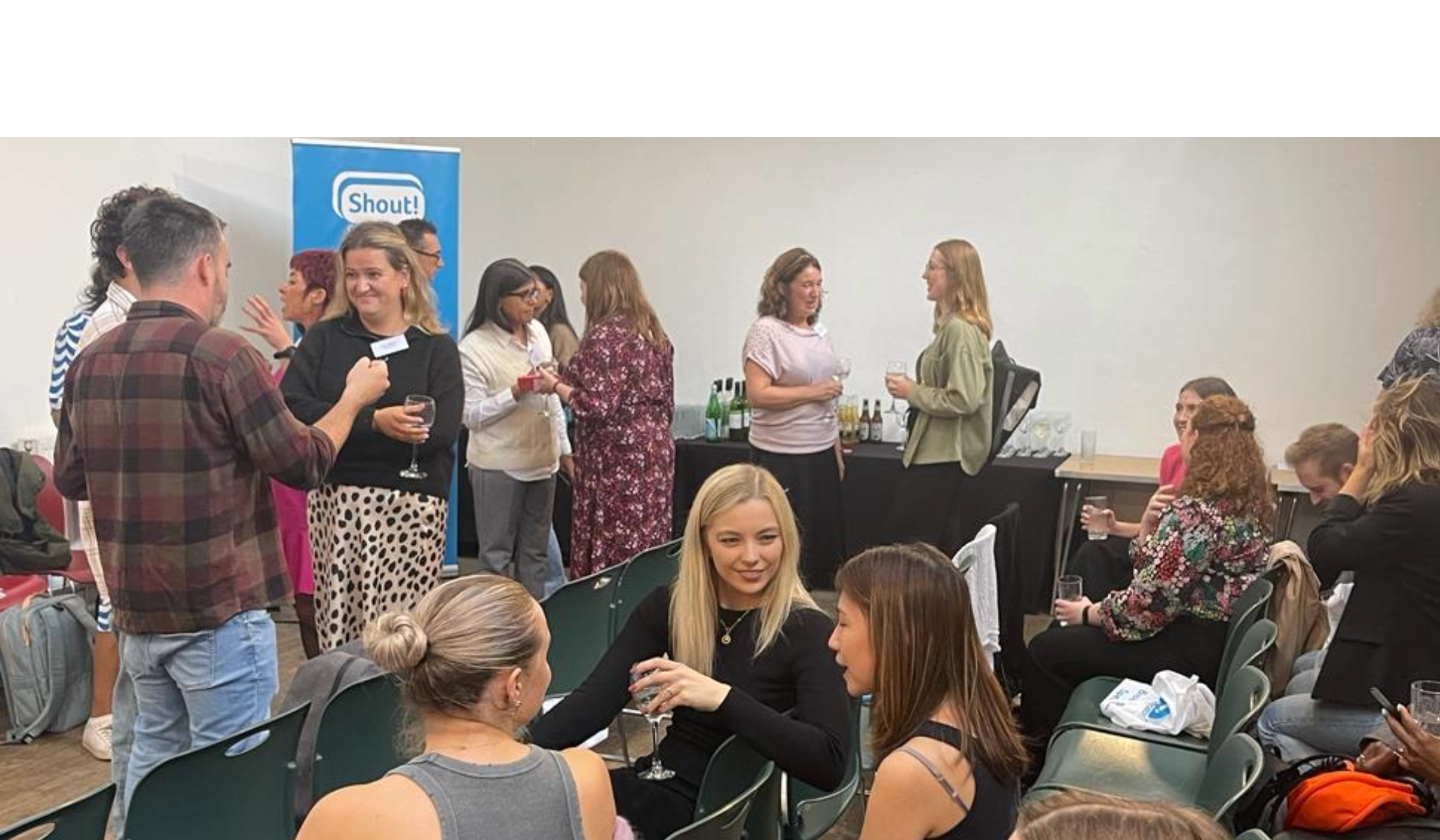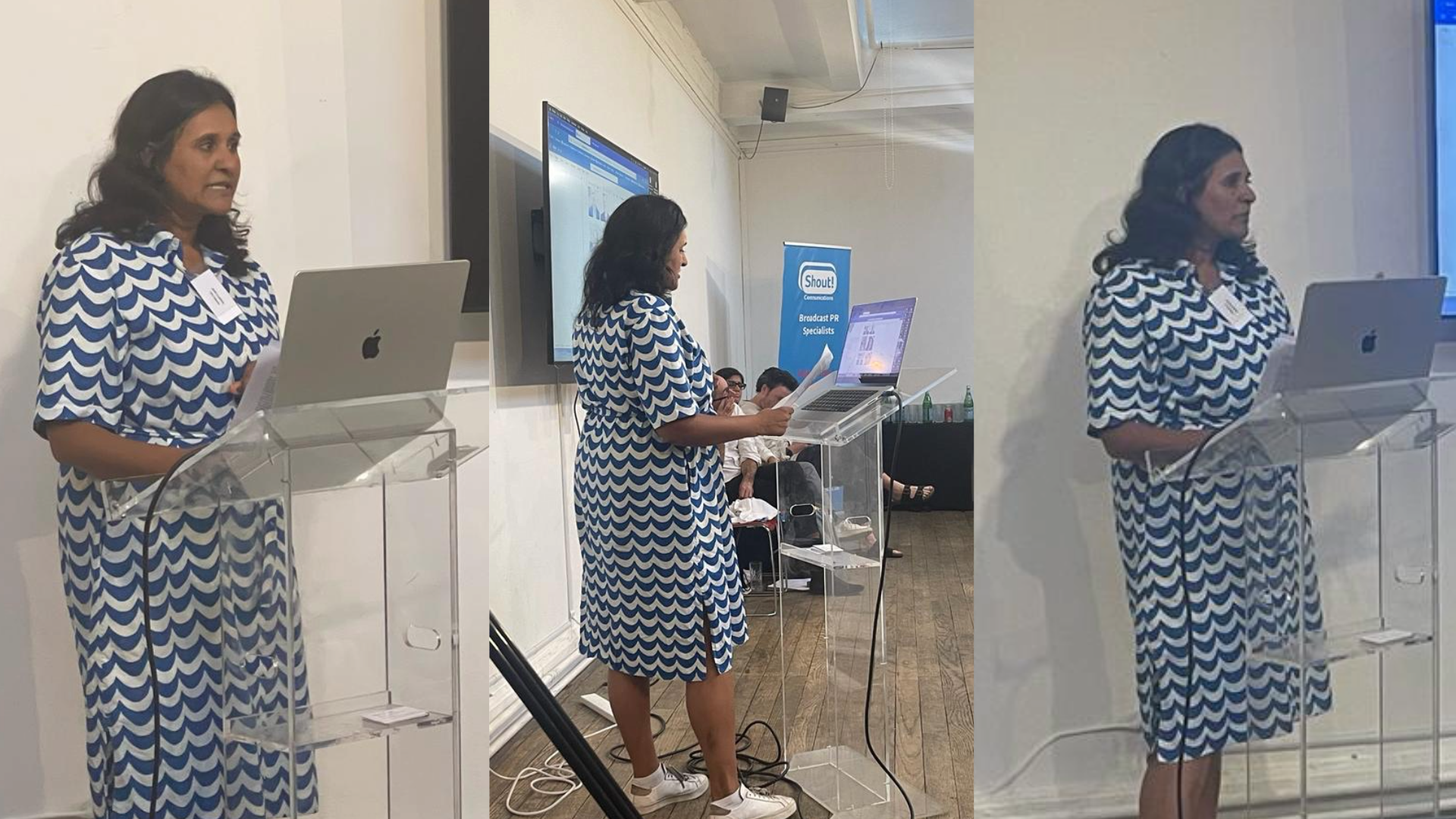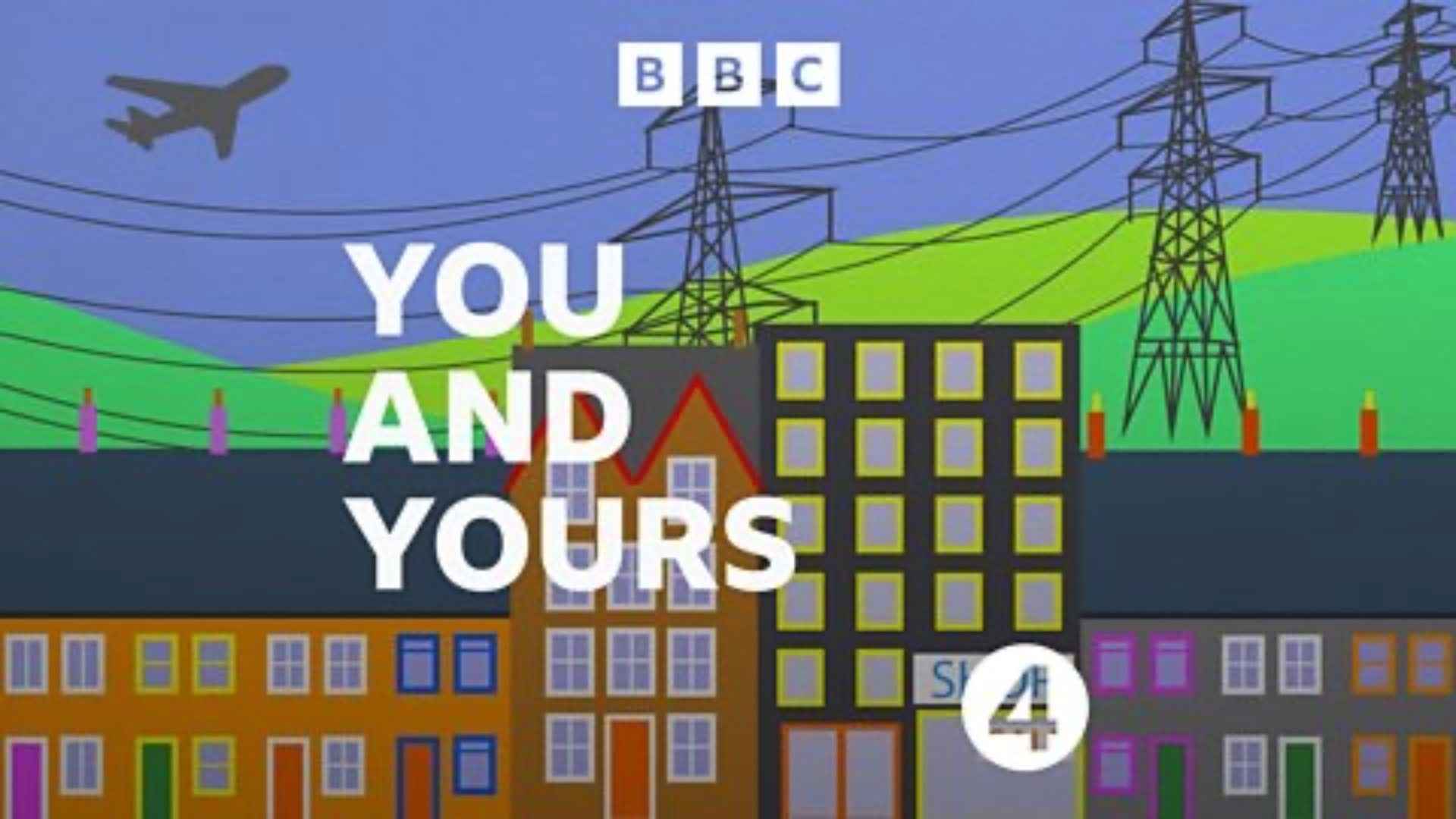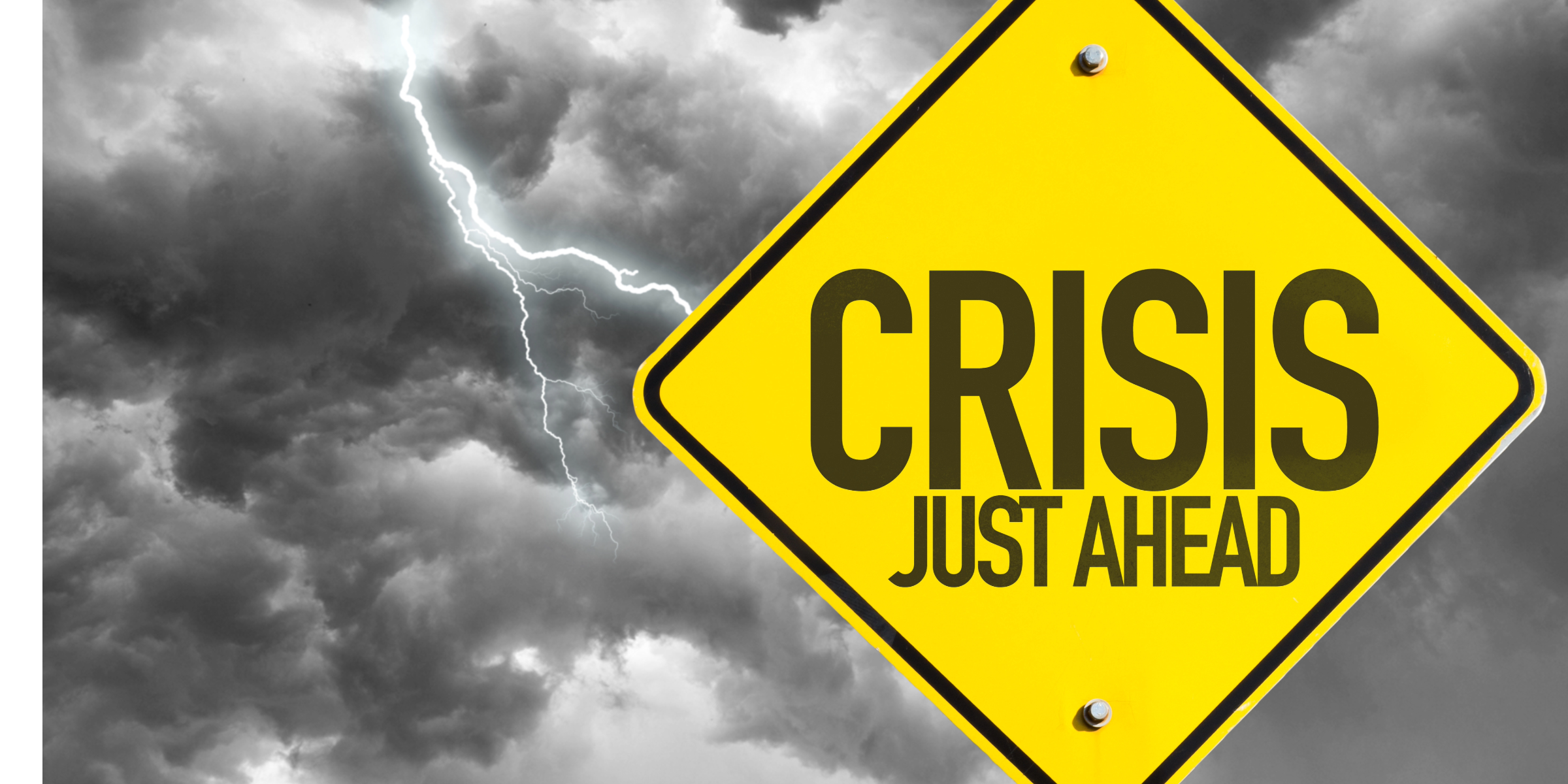Four great speakers, from the world of broadcast, an audience of 80 PR professionals and a buzzing atmosphere. It was our first in-person Big Talk this side of the pandemic.
First of all the speakers. What a line-up it was, with senior journalists from BBC News, ITN, GMB and BBC News Podcasts.
Magnus McGrandle, Senior News Editor at BBC News Channel
Up first was Magnus McGrandle, Senior News Editor at BBC News Channel. A self-described “lifer” at the BBC, with 15 years under his belt, Magnus has worked on the corporation’s flag ship news programmes, programme editing the One, Six and Ten o’clock news in his time there. His is, he says, a role that comes with big responsibilities and a lot of fun, working with the BBC’s top talent.
At the beginning of 2023 he moved to BBC News Channel as a Deputy Editor. This was a time of big change when BBC World and the rolling BBC News Channel that was once News 24, merged into one core channel. The editorial agenda is global in outlook but serving UK audiences. In practise, when there’s a UK breaking news story, this can man a “breakout stream”, meaning audiences have a choice of staying with the global news agenda, or opting for an alternative feed, focusing for that time on a UK story.
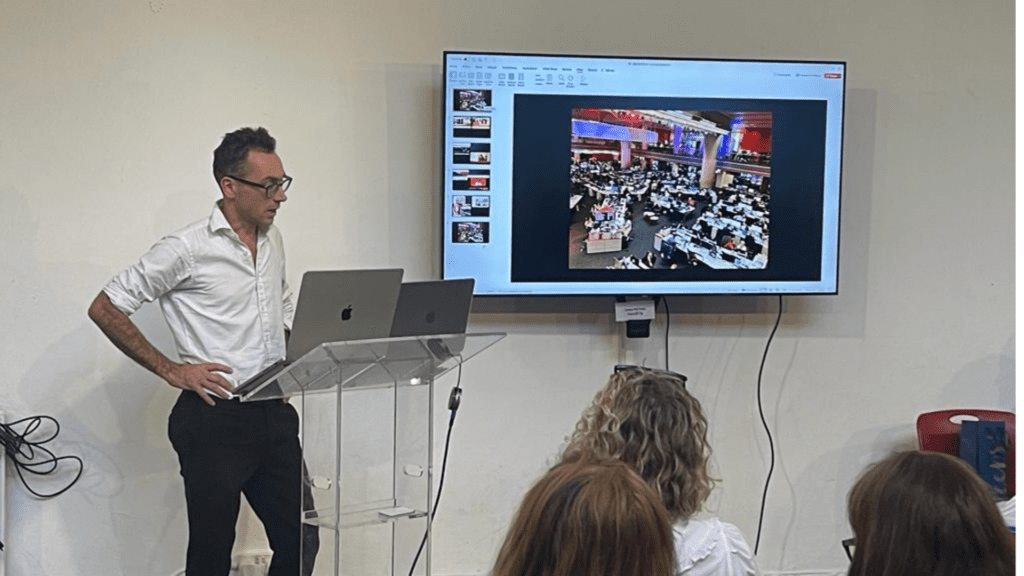
Challenges for BBC News Channel are shared by other broadcasters too, namely in satisfying the shift in the way audiences want to consume their news, in particular on demand. Social media, and especially the growth of TikTok, Magnus says, shows the way the BBC now curates news has changed. In the past it was highly curated, but now, he explains, the emphasis is on speed; content is now more important than technical quality.
Trust is another big issue and research suggests that the trust indices are on a downward trend. BBC Verify is an innovation designed to address that, a way of showing your working out, and how, journalistically, you got to a particular conclusion.
Magnus believes that original journalism, something that the BBC is so good out, still drives audiences. The BBC’s charter demands the corporation reflects public opinion and the way audiences most appreciate this is through the power of story telling, with a particular emphasis on strong human interest. He says Gaza is a good example of this – there’s the macro story, concerning politics and war, but there’s another layer concerning how people there are affected by events.
Arti Lukha, Programme Editor for ITV’s national news programmes
Next to take to the floor was Arti Lukha, Programme Editor for ITV’s national news programmes. Also describing herself as a lifer, having worked at ITN for 17 years, Arti began her career in print. Initially she worked as a sports journalist for PA. This was the late 1990s and Arti was the first woman to have held the position.
Moving to a regional paper in Staffordshire, she says, covering courts and council meetings, taught her how to find a story and, even more importantly, make it relevant to readers. Journalism, she explained, is about telling stories and print set her up with skills that she brought over into broadcast. At ITV regional TV, my colleague and Shout! Communications co-founder was Arti’s first boss!
At ITN, working on national news programmes, Arti worked as a Senior News Editor for six years, working alongside programme editors and overseeing some of the biggest stories of our lifetime, from Barak Obama’s election in the USA to HM Queen Elizabeth’s death. The day of our Big Talk had been tough, she admitted – one big story in Gaza, but with so many strands. The need for balanced reporting adds an additional layer of pressure.
ITV News, she says, is engaging and it needs to be in a competitive field. It’s distinctive, with the relatively new one hour tea time news boasting a 7pm slot, a longer piece with more in-depth analysis. Authentic, accurate, impartial, human-led and transparent are other adjectives Arti uses to describe her channel’s news programmes.
Like the BBC, ITV News recognises the influence of TikTok. They also tap into a younger audience with The Rundown and online.
Arti had some tips for PR professionals too:
- Try to link a PR story to the news agenda if you can
- Make it easy for the journalist to follow up on a press release with information about case studies and – and this might sound obvious – phone numbers
- Planning probably gets around 100 emails a day, so make your story suitable for ITV News, think who you’re targeting
- Make sure your story has a top line
Oruj Defoite, GMB’s deputy programme editor
GMB’s deputy programme editor, Oruj Defoite, has, by her own admission, moved around a bit, in her 25 year long career in television. This includes a stint as programme editor at Channel 4 News. Television is, she says, great fun, even more so now with its fast changing pace and overlap with TikTok and digital.
She describes Good Morning Britain as a three hour long magazine programme with different textures throughout. It begins at 0600 with a strong news bulletin and viewers, she claims, watch on average at that time, for around forty minutes.
The “water cooler” moment though – the bit of the programme that gets audiences talking about it – is always the silly (Oruj’s word) debate at the end. Oruj showed an example of one such debate about naturism. As with any debate there were two sides to the argument, but with this particular strand, one contributor was dressed and the other wasn’t. That, she claims, is the appeal of live television, the element of risk which might result in a nipple being shown when it shouldn’t have been.
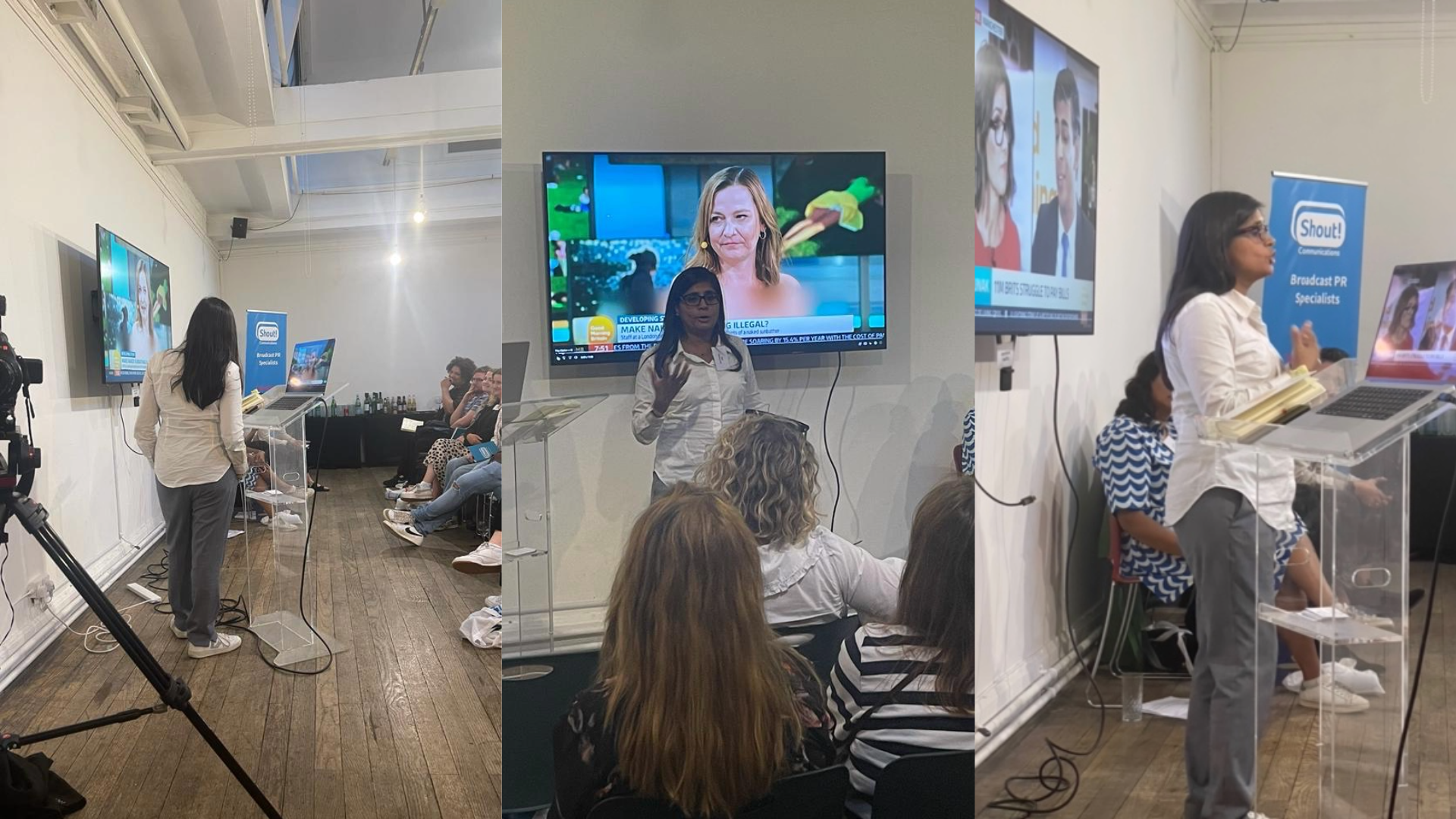
The debate is more about life style and in contrast to the news agenda, but the news element of the programme is still crucial. GMB’s approach is different to others. An interview with PR Rishi Sunak, for example, about Brits struggling to pay bills, was presented with significant emphasis on a case study. Presenter Susanna Reid went into great detail to tell this real person’s story before demanding Rishi Sunak to respond to it. Oruj says in contrast the BBC’s approach is likely to be more about policy, but GMB’s approach is more case study driven.
Sam Bonham, Senior News Editor, BBC News Podcasts
Nearly fifteen years at the BBC has seen Sam Bonham’s career shoot up from Broadcast Assistant in regional radio to overseeing the production of high profile podcasts including Newscast, Americast and Ukrainecast. Along the way he’s presented the Early Breakfast show on BBC Bristol and produced their mid morning and drive time programmes. He moved to BBC Points West (regional TV) as a producer, then went national as a producer at BBC Radio 1 and then Radio 6.
At BBC News Podcasts he oversees a small team of 3 to 4 people, producing original content that you just don’t get on other BBC channels. Podcasts are, Sam explains, a bit spicy, sometimes funny, quite informal and always conversational. These features are combined with some of the best qualities you associate with the corporation, namely analysis and trust.
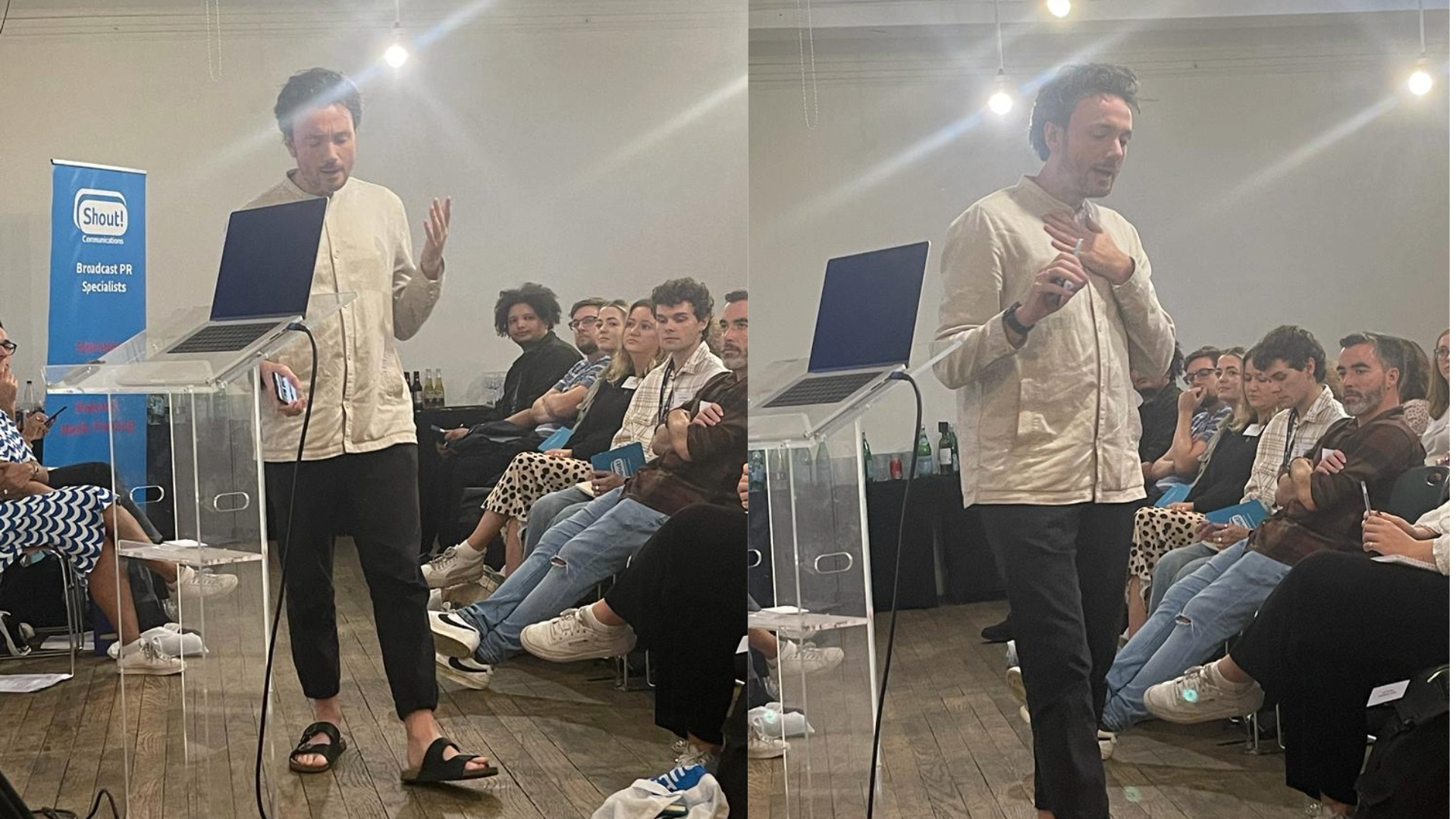
Podcasting, Sam explained, is a blank canvas on which he and his team can do anything. He began by citing two different podcasts produced by the BBC Newscast team, illustrating how varied BBC News Podcasts can be. The first, a few years ago, was about sandwich retailer Pret, and its introduction of a subscription model. It featured a 20 minute interview with the boss of Pret – much longer than would be given on any other channel.
His second example, a couple of months ago, was hosted by the BBC’s Economics Editor, Faisal Islam, and featured the Shadow Chancellor of the Exchequer, Rachel Reeves who had just returned from the US to give her economic vision. The interview with her filled the first half of the podcast, and the latter was given over to Jaguar and Oxford Energy, for their reaction to the politician’s words.
The formula may change, but it clearly works. Newscast has just passed its third year anniversary and has been expanded to seven, rather than five, days a week.
Sam concludes the podcast market is on fire – but it’s an unusual market. If you are categorised as ABC1 and live in a city, the chances are you will listen to podcasts. Once hooked you’re likely to be loyal. But 80% of the UK population haven’t ever listened.
Despite this, Sam says, the BBC are making more podcast brands than radio shows.
Broadcast PR opportunities
Opportunities are there for PR professionals to find. For example, Sam says, they often struggle to get big bosses to agree to be interviewed. But ideally any interviewee will agree to go into a studio – podcasts need to sound like you’re having a chat, and that’s much easier face to face than it is down a line, which doesn’t seen as natural.
Artificial Intelligence is another area where broadcasters need experts, not least because they may struggle to understand the sector themselves.
Don’t mention Christmas
Yes Christmas. As we’ve told our clients many times, broadcasters aren’t interested until the 1st of December. GMB pre-records their programme for Christmas Day, so maybe try them first!
Feel like you’ve missed out?
Make sure you’re on our data base so you’ll find out about future events like this one. To get on our mailing list email Keren@shoutcommunications.co.uk.
